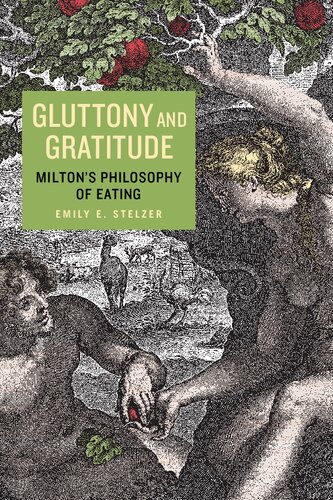

Most ebook files are in PDF format, so you can easily read them using various software such as Foxit Reader or directly on the Google Chrome browser.
Some ebook files are released by publishers in other formats such as .awz, .mobi, .epub, .fb2, etc. You may need to install specific software to read these formats on mobile/PC, such as Calibre.
Please read the tutorial at this link: https://ebookbell.com/faq
We offer FREE conversion to the popular formats you request; however, this may take some time. Therefore, right after payment, please email us, and we will try to provide the service as quickly as possible.
For some exceptional file formats or broken links (if any), please refrain from opening any disputes. Instead, email us first, and we will try to assist within a maximum of 6 hours.
EbookBell Team

4.3
68 reviewsDespite the persistence and popularity of addressing the theme of eating in Paradise Lost, the tradition of Adam and Eve’s sin as one of gluttony―and the evidence for Milton’s adaptation of this tradition―has been either unnoticed or suppressed. Emily Stelzer provides the first book-length work on the philosophical significance of gluttony in this poem, arguing that a complex understanding of gluttony and of ideal, grateful, and gracious eating informs the content of Milton’s writing. Working with contextual material in the fields of physiology, philosophy, theology, and literature and building on recent scholarship on Milton’s experience of and knowledge about matter and the body, Stelzer draws connections between Milton’s work and both underexamined textual influences (including, for example, Gower’s Confessio Amantis) and well-recognized ones (such as Augustine’s City of God and Galen’s On the Natural Faculties).